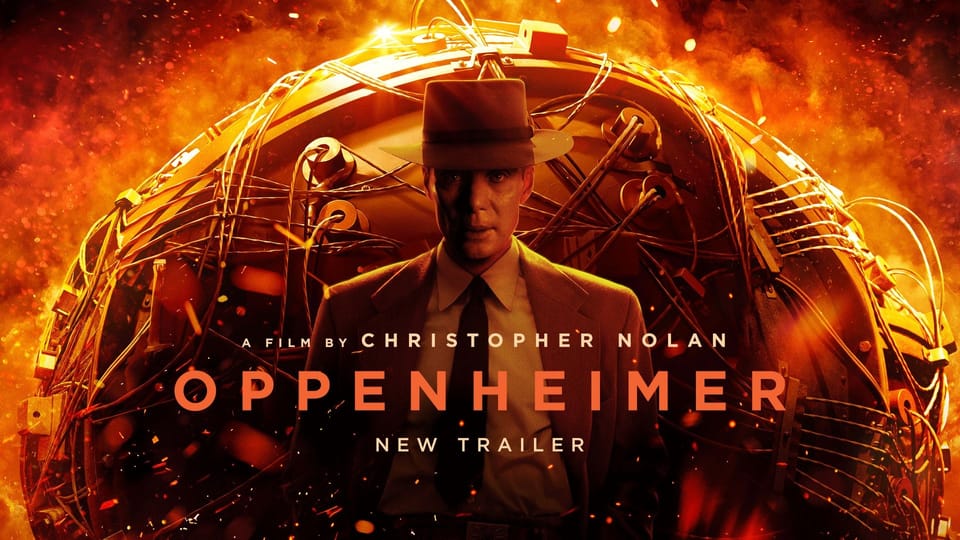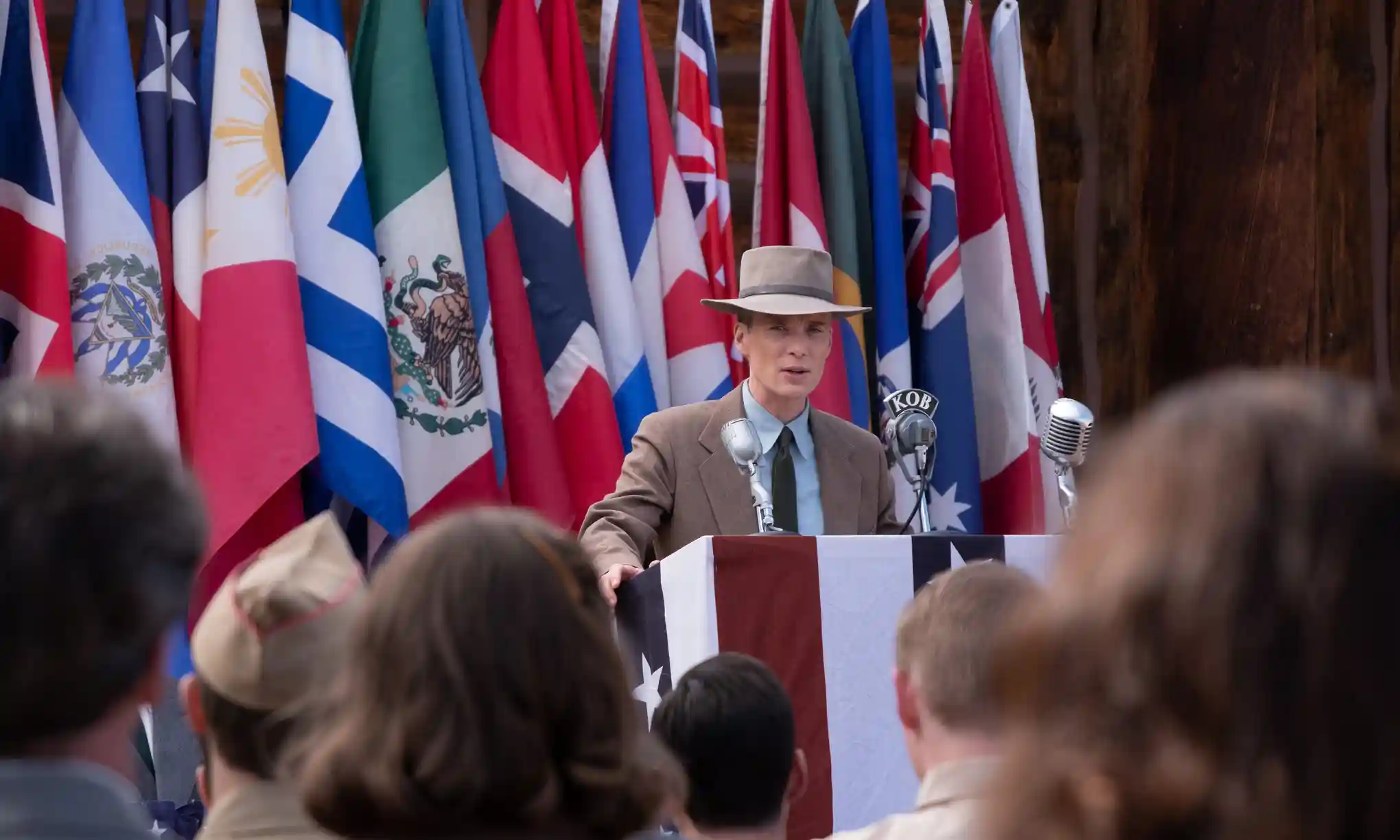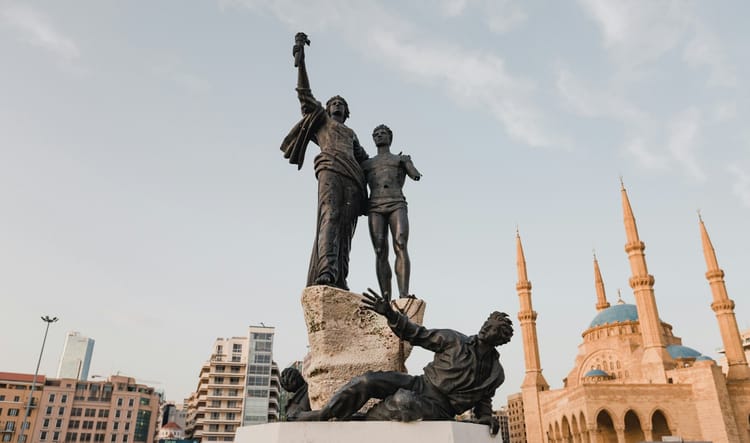Worth Watching - Oppenheimer

Oppenheimer is a visceral movie experience, well worth a trip to an IMAX to experience all its gut-punching glory. Anchored in a mesmerising performance by Cillian Murphy who plays the titular J. Robert Oppenheimer, this biopic based on American Prometheus: The Triumph and Tragedy of J. Robert Oppenheimer by Kai Bird, plunges into a heady tale of ambition, jealousy, moral ambiguity, hypocrisy, obsession, pettiness, greed, the terrifying and terrible human condition.
As Rushdie once said:
This is what we are, what we civilise ourselves to disguise — the terrifying human animal in us, the exalted, transcendent, self-destructive, untrammelled lord of creation.
There is a hypnotic physicality to it, from the towering presence of Cillian's face, to the sweep and surge of time forwards and back; through to the psychedelic visuals eerily similar to Terrence Malick's work and the towering textured wall of sound that throbs and pulses through it all. Cillian is enthralling as Oppenheimer, engulfing your vision with his cold, baleful eyes, embracing both the charisma and charm of Oppenheimer, but also the haunting melancholy of that mythic character.

Nolan is a master filmmaker, often toying with myth, with the grandiose, the epic, the Greek tragedy, as in his retelling of the Batman and Joker in The Dark Knight Rises. It finds even better shape and form here though, in the myth and legend of Oppenheimer. It is a sweeping tale, the petty politics of the 40s and 50s, the charisma, charm and larger than life persona and legend of Oppenheimer, his dread ambition, his love, his lust, the haunted "father of the atomic bomb". This is a truly majestic movie, evoking immense awe and terror, giving voice to the idea of Oppenheimer as a tragic American hero. That is all a movie should be, invoking this raw emotion, this gut reaction, it doesn't need to do more - and certainly here, the tale of Oppenheimer in movie form does naught to deal with the horrific devastation wrought about the Japanese people, or the Hispanos and Native Americans downwinders.
I love this movie, it is a masterpiece.

But there are some key things left out of the movie we should remember when considering the atomic tests and the impact of nuclear weapons on the world.
- The Trinity Tests affected 500,000 people downwind of the test site, causing lasting damage to community and lives. People not given a chance to move, simply not being informed of the tests before or after, largely ignored as a forgotten footnote of history.
- Much of the work of the Manhattan Project was producing the enriched uranium needed - a celebrated detail in the movie as marbles fill a glass bowl and wine glass, but a detail with untold cost to the communities impacted in producing the fissile material.
- The devastation to Hiroshima and Nagasaki is not tangled with at all, the sheer horror of it, the unreal, unwavering madness of dropping nuclear weapons of such destructive force on actual people - the ethics and dubious morality of this.
In many ways, the cognitive dissonance of the movie averting its eyes from the horror of the atomic bomb, the actual human cost of it, is a tribute and clever analogy that Oppenheimer, Truman and even the American people, averted their eyes and haven't wrestled with the inhumane horror they wrought. Clever only if you consider it, think about it and really grapple with it.
The gravest mistake the movie makes is peddling the narrative it has on the necessity the Americans felt in using the nuclear weapons on Hiroshima and Nagasaki - the story of the debate, the careful deliberate consideration Truman gave to this problem and gravely deciding that dropping the atomic bombs would save a million American and Japanese lives. This is largely a fiction concocted as propaganda by the Truman administration, inflating predicted casualties post-war to craft a narrative that didn't inform the decision at the time.
The truth is a far more prosaic, political need. From John R. Emery (assistant professor of international security in the Department of International and Area Studies at the University of Oklahoma) and Anna Pluff (New Voices in Nuclear Weapons Fellow at the Federation of American Scientists):
The PR campaign by Truman and Stimson of the casualty myth served to cement the United States as a responsible and moral power post-World War II. While having mastered weaponized atomic technology, we only deployed it against our enemies out of a utilitarian calculation of least harm, with deep moral regret. This solidifies the US identity as the moral leader for the world throughout the Cold War and beyond. Claiming to have saved millions of American lives is a linguistic trick to put those both at the time and today arguing against the necessity of the atomic bombings to end the war at an instantaneous disadvantage. Framing the debate in this way makes the answer of “we had to drop the atomic bombs” a foregone conclusion.
War is always uncertain; but at the time, those that authored Truman’s Strategic Bombing survey deemed the atomic bombings unnecessary. The Joint Chiefs of Staff estimated only tens of thousands of casualties and emphasized the necessity of the Soviet invasion to force Japan’s surrender.
The largely political agenda of a post-war superiority, shaping the post-war power balance of America with the Soviet Union is a poor excuse for the magnitude of generational devastation and horror visited upon the Japanese people. John Hersey's articles in the New Yorker remain the most poignant reporting on the impact to Japan. I urge you to read this seminal work.
Another American legend, Cormac McCarthy touched upon this briefly in The Passenger. It's a horrifying quote to end with, but the horror was real, unimaginable, terrible, terrifying, but all too real and too important to neglect, too important to avert our eyes:
There were people who escaped from Hiroshima and rushed to Nagasaki to see that their loved ones were safe.
Arriving just in time to be incinerated. He went there after the war with a team of scientists. My father. He said that everything was rusty. Everything looked covered with rust. There were burnt-out shells of trolleycars standing in the streets. The glass melted out of the sashes and pooled on the bricks. Seated on the blackened springs the charred skeletons of the passengers with their clothes and hair gone and their bones hung with blackened strips of flesh. Their eyes boiled from their sockets. Lips and noses burned away. Sitting in their seats laughing. The living walked about but there was no place to go. They waded by the thousands into the river and died there. They were like insects in that no one direction was preferable to another. Burning people crawled among the corpses like some horror in a vast crematorium. They simply thought that the world had ended. It hardly even occurred to them that it had anything to do with the war. They carried their skin bundled up in their arms before them like wash that it not drag in the rubble and ash and they passed one another mindlessly on their mindless journeyings over the smoking afterground, the sighted no better served than the blind. The news of all this did not even leave the city for two days. Those who survived would often remember these horrors with a certain aesthetic to them. In that mycoidal phantom blooming in the dawn like an evil lotus and in the melting of solids not heretofore known to do so stood a truth that would silence poetry a thousand years. Like an immense bladder, they would say. Like some sea thing. Wobbling slightly on the near horizon. Then the unspeakable noise. They saw birds in the dawn sky ignite and explode soundlessly and fall in long arcs earthward like burning party favors.





